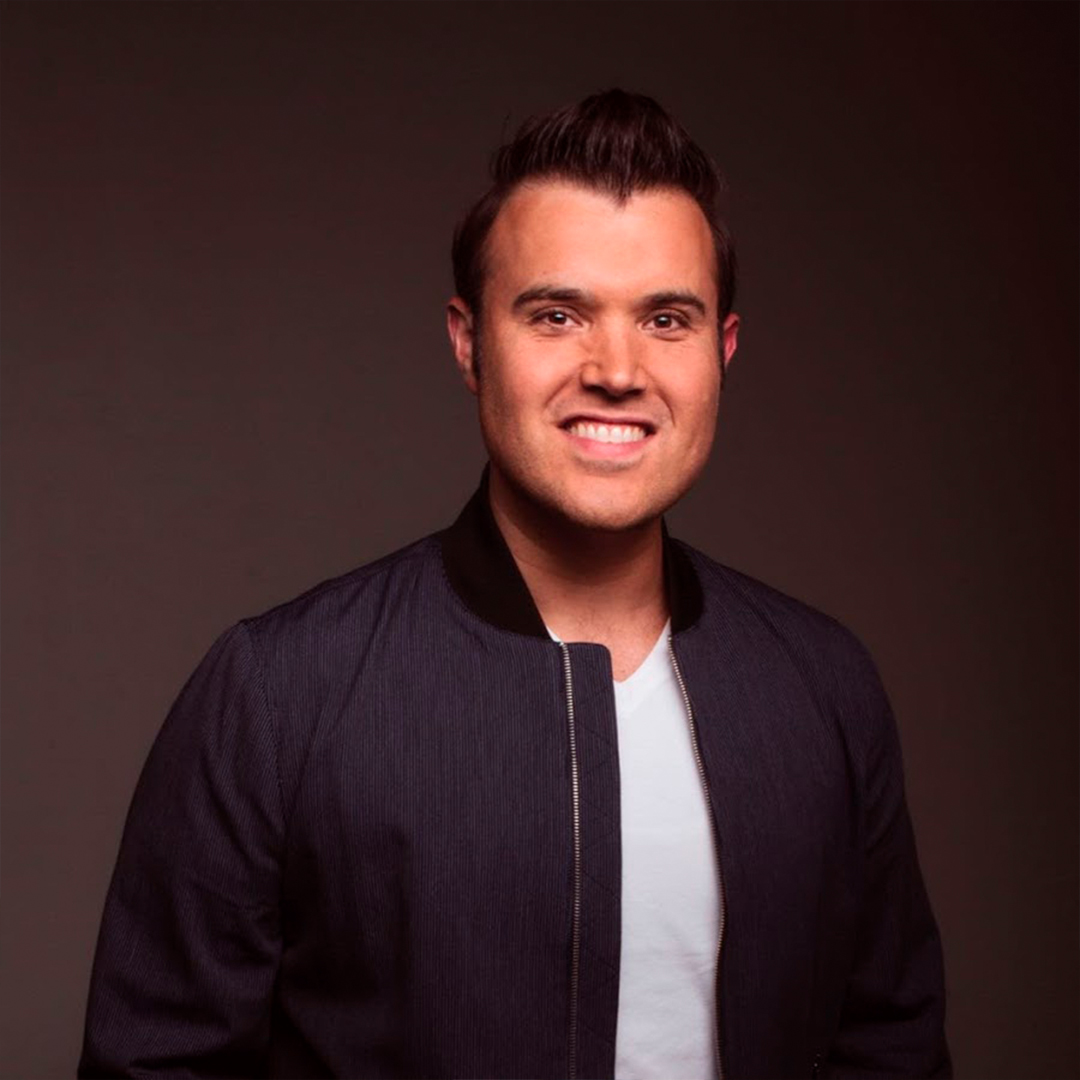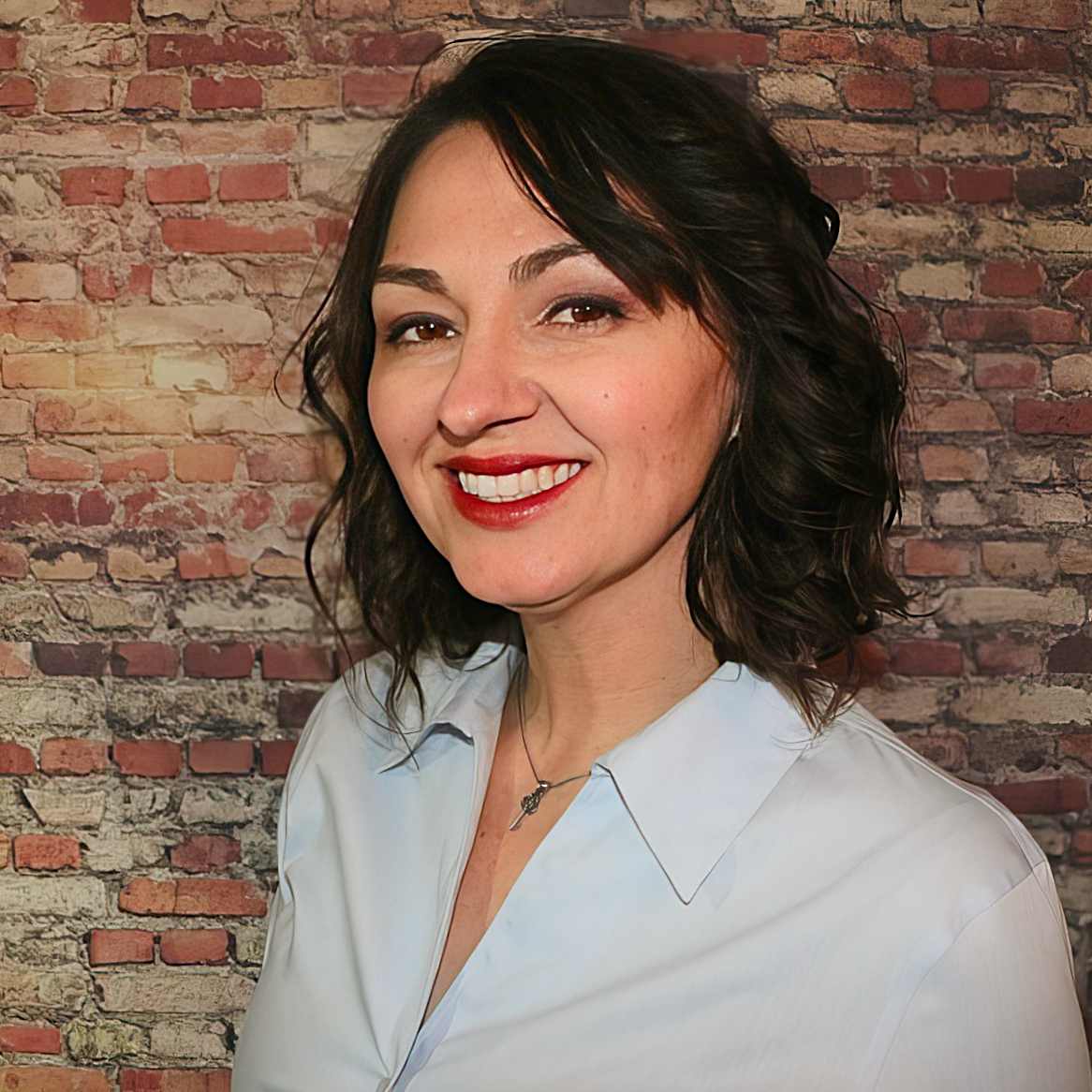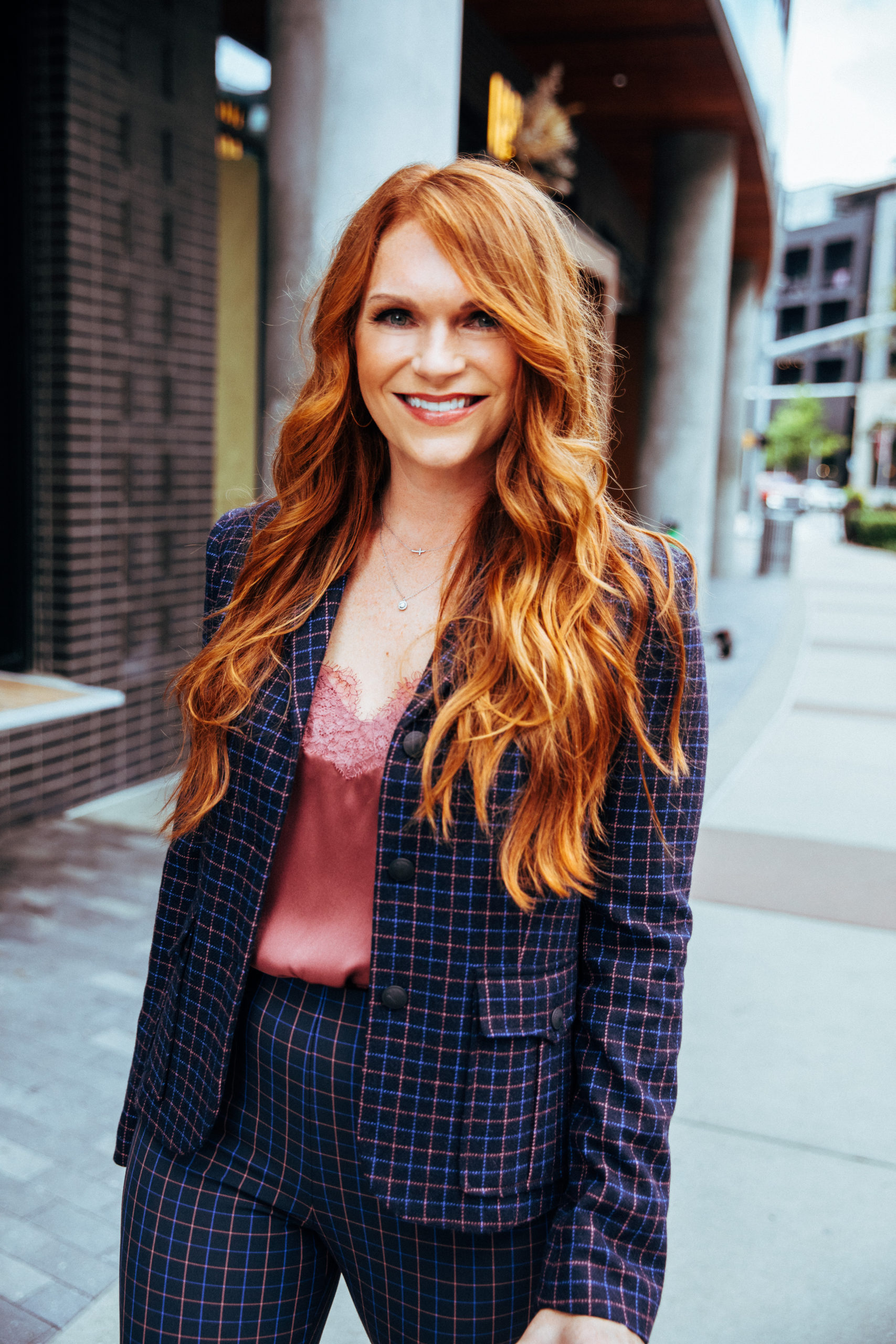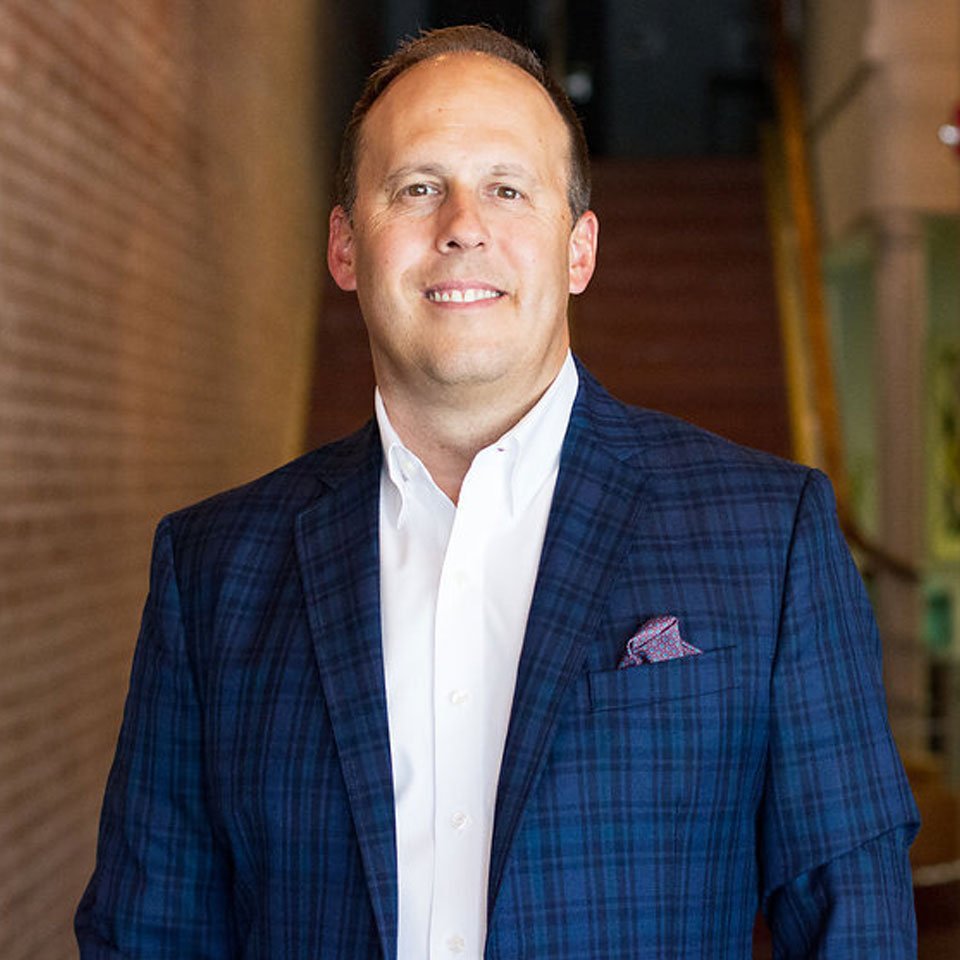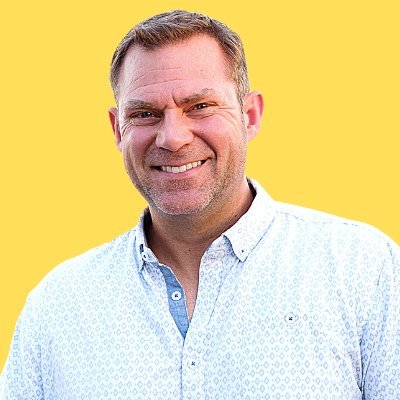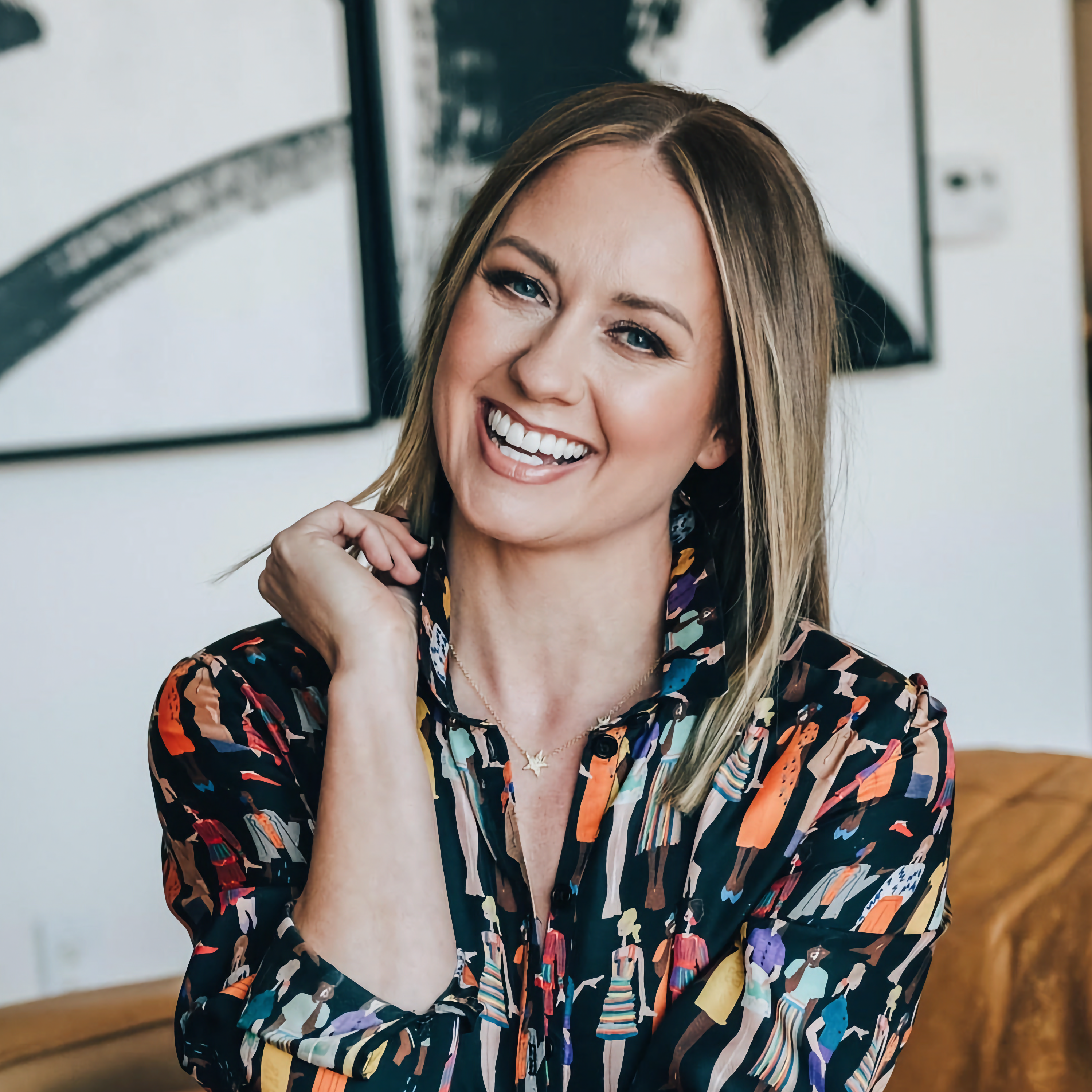RV: (00:01)
Such an honor when I get to introduce you to someone who is not only an incredible influential brand but also someone who is a client of brand builders group because we get to know these folks really well and we get to kind of work with them behind the scenes and I’m excited for those of you that don’t know him to meet Alberto’s tardiness. And if you don’t recognize his name, it’s probably because you don’t speak Spanish. But if he did speak Spanish you probably would know him. He’s a celebrity Spanish radio hosts. He has a show called Empty Mo, which as 22 affiliates across the country and it’s a story-based show where they take calls from listeners and Alberto has 2.8 million Facebook fans closing in on 2.8 million Facebook fans. Now it’s all in Spanish primarily and he is doing, he’s doing something interesting.
RV: (00:57)
He is now moving over to the English market and that is when we met him and we started working with him. But he also has an MBA. He’s the author of multiple books. His English podcast is called the passion accomplished podcast. So he’s now hosting, not just terrestrial radio, but now he is in the podcast platform. And so I wanted you to get to meet him here are different perspective about, you know, doing, building an audience in the Spanish market, but then also he’s just incredibly experienced as a host and he’s a really amazing, genuine guy. I know you’re going to love him. So Alberto, welcome to my show, our show.
AS: (01:37)
What an honor. Thank you so much Rory, for having me. It’s really a pleasure and an honor to be here and thank you for the wonderful intro.
RV: (01:45)
Yeah. And I can’t wait. I’m sure we’re going to get the comments of like, Oh, you guys could be brothers mad. And I’m like, Yep, I like it. I’m sure we’re going to get the comments. So let’s go ahead and do that, get that out on the table. But so first I would love to just hear kind of how you got started and let’s talk about kind of the Spanish market specifically. Cause I, I know you’re, you’re kind of, you’re not, you’re not transitioning away from that, but you’re simultaneously building up in the English market. But I think that’s a world that most of our listeners are probably not that familiar with. And so how did you get started? Like how did it happen and then how did you end up on the radio? And then from there, I mean, you are one of the number one Spanish radio hosts in the U S at least in terms of social media following. So just kinda give us that, that story a bit.
AS: (02:35)
You know what, I’ve always been passionate about radio. I remember my dad sharing with me when he was a teenager, he used to have a radio show. And I remember seeing at home those recordings that were very hard to play because they weren’t very old formats. And he didn’t do that for long. He did it for a couple of years. This was back in Venezuela where I, you know, when I was born and raised, but when he came to college, he went to FIU here in Miami. He decided that he wanted to look for a business degree and pursue that and he just got out of radio. But I was always inspired by the idea of communicating. And when I went to college, I went to the school of communications in Caracas and I literally started pursuing radio opportunities. So I remember I was the only crazy guy.
AS: (03:20)
I was 17 turning 18 starting college and I was the crazy guy that suggested to some friends that we rent a radio studio for a couple of hours a week just to practice, just to see what we could do. And we tried to it inside the university and they didn’t have anything available. So we went to an actual commercial radio station and just started practicing by paying a board operator anything we could and anything we scramble together just to try out radio for a moment. And then one thing led to the other. I mean, I spoke with someone who who knew that I was interested in doing this. And then I started doing a radio segment once a week. It was an evening show, top FM station. I could not believe I had given the opportunity. I was given the opportunity of spending 10 minutes a week to talk about what was going on in colleges around town just anything that had to do with science, from science to parties, to exhibits to anything going on in colleges in Caracas which is where, where I was born. And then I remembered the, you know, driver’s licenses in Venezuela for minors were only valid to 8 o’clock at night. And if you drove after I, you know, past 8:00 PM you’ll get in trouble with the authority. And my dad used to drive me to a radio station then and he was so proud of me and he would stay downstairs listening to me on his, in his car and I would go do my segment. And that’s how I kind of like broke into radio for the first time.
RV: (04:42)
So how did you end up in Miami on the radio and like when does it start? Cause you’re not, I mean you’re in markets all across the U s right? I mean Texas and California. Yes,
AS: (04:52)
Absolutely. When did that happen? Well, it was a slow transition. And to me the key message here is patience. And I’m just being very, very consistent in your attempt to communicate and to get your message out there, which is what you guys are experts on it, you know, I mean you can give everybody the tools, but people don’t have the consistency to keep trying to keep hearing no a few times and just, you know, keep pushing it. It’s very hard. But I moved to Miami when I graduated from College and I came here to pursue my MBA at the University of Miami. And then I was the only crazy guy who was going through an MBA program, going to the career center, trying to find a radio job before like hello, we’re all try to work here at Morgan Stanley or Bank of America. I mean, you know, or, or, or, or the corporation, why are you looking for a radio job?
AS: (05:35)
And I had been doing radio for a few years in Venezuela and that’s what I really wanted to do. So I started working for free. I did the whole thing, you know, I interned, I pretended that I don’t know anything, so I could just be given an opportunity to make photocopies and get coffee for people. So I would kind of like go in, et cetera. And then the other thing that happened, which I think was also very interesting is the fact that I worked in different formats, several different formats for a very long time and I was never really I’d never written, never had a sense of belonging to any of those formats. Now, there was a crucial point in my career, which happened, you know, over 10 years ago now in which I was going through a very, very rough moment in my life. I had been taken away, so to speak, from one radio company to about to another.
AS: (06:25)
I was kinda like stolen by the competition. Very exciting moment, very exciting time. However as I transitioned to this new company, they made internal changes within it and I was hired to do a show within a certain format. And the day I walked into the new job, they had completely changed the format of the station that I was hired for. So everything just became this thing with the new guy. You imagine one of those weird corporate moments, you know, we have this guy, we hired him for one thing, but we’re changing the station to another. So soon enough, three months into it, my radio show gets canceled. And at the same time I was going through very difficult personal moments. I, you know, I had been in a relationship with a girlfriend for about three years and that also ended and the biggest, biggest thing that was going on in my life is that my mom was battling breast cancer.
AS: (07:15)
And that unfortunately, and very sadly, within 90 days, my radio show got canceled. The relationship ended and I lost my mother to breast cancer. All within 90 days I was going through this really, really tough time. Imagine, I mean, when you feel that life just gets absolutely out of balance, that you really don’t know how or what you’re going to do. You’re trying to just like go to work every day to have that consistency, not to lose your job. But my boss had promised me that he would keep me on board. He liked what he saw as far as me being a producer, not only a host, and he calls me to the office one day and he shares with me this idea, this concept that he had. He says, listen, I want to start a radio show during the evenings on this radio station in which between songs, the host of the show is going to open the lines and is going to listen to people’s personal stories.
AS: (08:08)
And when asked, the host of the show was going to give people advice. So I’m in producer mode, right? I’m not even thinking about my future there. I’m just trying to make it to work every day. And I go, okay, so we’re doing a pilot, what are we doing? And he goes, no. And he’s like, you know, I remember asking him, for example, who do we hire? Who Do we test? Do we bring a psychologist? He said, Oh, I’m talking about you hosting the show. I was silent for like a minute and you know that in a conversation these, I’m like for a minute it feels like an hour and I go, are you asking the most depressed person in this building to give people advice? I remember that. I’ll never forget that moment. And like you’re asking me, I’m dragging myself to work everyday and he’s been a great guy. He’s still a great friend and I knew he could understand me and he’s like, yeah, I’m asking you to do it. And suddenly I said, well, I don’t know if I’m gonna be the best person to do it, but I’m jumping in. I’m jumping in. I’m doing it. And that was the beginning during the most difficult time.
RV: (09:09)
And this was 10 years ago.
AS: (09:12)
Tha was about 12 years ago. Okay. That was the beginning of intimal, which is a show that started in Miami, is now syndicated in 22 markets. But it was also the beginning of becoming an inspirational speaker in Spanish network television, getting a book deal, getting speaking engagements and getting into the best part of my career ever. And it all started in the darkest moment I’ve ever had in my life. So it’s one of those things where you never know when the opportunity is going to come, but what you do have to know is that you have to be prepared. You have to be at the best of your game because that opportunity could have shown up, could have showed up and maybe I would not have been ready to take it. But it had built so much into my career that certainly when this shift happened, I was able to take it. I was able to ride it and capitalize on it.
RV: (10:05)
Yeah. Yeah. I love that. I think that that’s a good personal note for people to just know. I mean there’s, I think I can look back on my life and go, hey, there’s all these things that didn’t work out for me the way I thought, but they’ve all kind of led to something better. So I want to get into the sort of like some of the technicalities of hosting.
AS: (10:27)
So, first of all, and this could be for radio and I do want to delineate a little bit between the radio format and the podcast format because a lot of people don’t know this. I was on terrestrial radio before I became a podcast host and it’s very, very different. People might assume it’s the same as not the same, but in general, what are some of the things you think that make a great host? Because I think, you know, when you’re the speaker or you know, when you’re the author and you’re there teaching, I mean do you think it’s quite a different role than the role of, of playing the host or do you think it’s basically the same thing with just having another person there?
AS: (11:08)
You know, I think it’s interesting. I was, I’m rereading the book by Simon Sinek, you know, It Started with Why and I feel that does stronger your why, the stronger your delivery in any platform. It doesn’t matter where you’re trying to get to because at the end of the day we’ll know that we have to be where our audience is or could be. So if you’re on stage, of course you have a different purpose, you’re probably more specific in terms of who’s there, you know, who’s in the room, what they’re interested in. But one of the things that I believe that really, really makes a difference in this whole system is the fact that you have to be absolutely prepared for the situation prepared for the occasion. And what I mean by that is that I learned this very, very powerful concept many years ago when I was studying to be what we call them in Venezuela [inaudible], which is a radio host.
AS: (11:59)
And you know, you need to get a certificate in our country to do that, et cetera. And, and the key to this was that the secret to improvising is not to improvise. That’s kind of like one of those big, big concepts that I learned when I was preparing for this at the beginning of my career. So the secret to improvising.
RV: (12:18)
What does that mean?
AS: (12:19)
Basically what it means is that I am able, I am ready to speak with you about a subject in a fluent way when I know what I’m going to talk about. And unfortunately a lot of people focus so much on the form and focus so much on trying to get that delivery perfectly. You know become perfectly familiar with the delivery and make sure that the words are carefully chosen, et Cetera, that they forget about the essence of the message and people are not going to give us their attention, which is one of their most valuable assets if we’re only, they’re trying to show how good we are.
AS: (12:56)
What we’re trying to do is we’re trying to deliver a message and that has to be mission-driven. And that’s one of the reasons why I like the work that you guys do so much because you help everybody and you have helped me gain that clarity that’s necessary to be able to deliver a message. Nobody will ever be comfortable in front of a mic, whether that’s a podcast set up or whether that’s a live radio set up. If their message is not clear, if their intention is of clear, if their purpose is not clear. So if you want to remove 50 60 70% of what holds you back from opening a mic and delivering a message, just get ready with that message. But don’t prepare that message by memorizing it. But make sure that you have a message that you feel very passionate about and that you have a message that you could talk about for hours.
AS: (13:43)
And then when the light goes on, when the microphone goes on, when you’re live on the radio, regardless of the format, you will be prepared to tackle that and you would prepare it also to get the attention of people. Because at the end of the day, Rory, when we’re trying to deliver our podcast where we’re trying to have a live radio show or try to speak, all we’re begging for is for the attention of others because we believe that our message has value. But an on prepared message, a message that is not strong, a message that we don’t love, a message that we couldn’t talk about for hours is a message that will be a weakness. And we’re on the opposite side. We need to be on the opposite side, which is the passion, the thriving, the encouragement and transmitting that energy to others and showing them why our message is valuable.
AS: (14:31)
Yeah. So what do you think, cause I know you host the podcast and the radio, what do you think are some distinct differences between, you know, hosting the radio show and the radio format, I guess versus the podcast format? I think it all starts with, with the audience because it should all be about the audience at the end of the day. So, so when you do broadcast radio, when you do broadcast television, which are beyond of doing every day of my life you are, you know, you are preparing a message for a broader audience. So, so that’s why it’s broadcasting because you’re trying to get as many people as possible involved with your message, whether that’s entertainment or that’s listening to other people’s stories or delivering valuable information when you’re doing some breaking news coverage, et Cetera. So you are appealing to a broad segment of the population.
AS: (15:25)
And of course you need to have a target. You sort of have an Avatar that you work from, but you are, you know, hoping that you’ll be able to gather as many people as possible for a message that’s very broad. However, when you start podcasting or you do anything for that matter, that has to do with a niche, with a video, with a market that you understand a lot better, then what you’re doing is you are aiming to, you know, satisfy and to inform and to deliver your message to a group that really doesn’t matter what size it is. But it’s a lot more about the value of the group. It’s more about the relationship that you can create. It’s about a lot about what they’re craving. And this is maybe just an area of their life that you’re talking about. You may be talking about pets, you’re maybe talking about psychology, you maybe talking about technology and what you’re trying to do there. You’re not trying to find a million people that listen to you. If you get a million people listening, that’s amazing. But really what you need is those 1000 true fans. You know, as the article says and it’s gone viral all over the world. I mean, what thousand true fans can just bring you the fortune, the, you know, the, the success, the revenue. It can just bring you it’s just brought your business model to life. So it’s a lot more specific and I believe that it is possible to like coexist with both.
RV: (16:44)
Okay. Yeah. And what about, the one thing about your radio show, I mean, when your podcast, you’re interviewing one person and typically I feel like the person you’re interviewing on a podcast, they’ve thought through what they’re going to say right there. They’re probably an author or at least a speaker or you know, coach maybe on some kind. But on your radio show you kind of just open it up to like random people calling in, sharing their stories. How do you, how do you kind of rein it in, right? Like if they’re, if they’re either babbling or they’re not making sense or they’re taking a long time to get to the point, or there’s not anything that engaging, like, you know, it’s like, if they’re not entertaining, they’re not, and they’re not informing, they’re just kinda talking. What are some things that you kind of do at a host to either like speed it along or get to the point, or like how do you kind of manage that relationship?
AS: (17:44)
It comes back to preparation. We never put anybody on the air that we don’t know what they’re going to give us. So, so you never, I mean it’s nice when you give the sensation on the air that this is just a free flow of different callers, et cetera. But you know, you prepare people from the technical standpoint because you don’t want them on Bluetooth, you don’t want them on speaker, you want the be all the onto the phone, you want to have the right communication on the technical side. And then the next thing is you want to have the right story. Not that, not that one story is more important than the other, but you want to make sure that people are actually willing to share something that’s relevant for the show. Because what could happen, it happens many times is you can have people first that can have, you know, they want to call on.
AS: (18:26)
They just think that they can speak to me off the air. Like as if I’m available, you know, for hours and hours just to speak to people, which unfortunately is not the purpose of what I do. And then you could also have people just wanting for you to kind of like, guess what’s going on. But they’re so afraid to be on the radio that they really don’t give you anything, but they’re eager to get some type of advice from a friend. And unfortunately that’s not going to work either because we need to give the audience who is, you know, who we’re working for a full story that allows us to find a lesson that can apply to a lot more people.
RV: (19:00)
Yeah. So you’re, I mean, that’s telling in and of itself, there’s like, I think we’re a pretty rigorous screening process and selection process and it’s almost like by the time they get to you, everybody knows what’s going to happen. Yeah. For the most part, sort of what’s going to happen.
AS: (19:16)
Absolutely. You have some sort of a base at least on, on, on where to take it off from, you know.
RV: (19:21)
Okay. and, and is there anything that you do during those interviews to try to draw out the story? Cause this I think would apply to anybody watching that maybe hosts a podcast. I think we probably have much fewer people that are watching that are hosting terrestrial radio. But anything that you do or you’ve learned over the years to try to like draw out the most compelling parts of the story or draw out the lesson or you know, basically just kind of extract the, would be value for everyone listening, not just for that one person.
AS: (19:59)
Absolutely. Again, it all starts with the purpose you need to be, you know, really interested in, in fulfilling that purpose through that story. And that applies to anybody who’s ready to start a podcast. As you know, it’s a very simple process on the technical side, but you have to have that clarity of the format of the show. You need to understand where is it that you want to take people and who’s actually relevant for your, for your story. I mean, no fortune, a lot of people just want to have this podcast about conversations. You know, I, it sounds very nice, but a conversation sounds a lot better when you’re not recording where you don’t have a Mike in front of you. I mean, if you just want to have conversations and, and you believe that you may get some attention, give it a shot. But My, you know, my take on this is understand what the format of your podcast a creates as far as expectations.
AS: (20:50)
Understand who your audience is. And then when you understand your audience and you align it with your own interests, then conversations really, really flow well. But if you’re not interested, if you’re sort of like forced to be in a position where you say, well, they just, you know, Rory said that a podcast would be good for me, but I’m not really, you know, I’m not really interested in asking anybody questions, then that may not be the right place for you. And there’s so many other formats and so many other outlets, you know, from blogging, from doing video in any other way from people capturing and following you so they can see what you do every day or courses, et cetera. So I really don’t feel that there’s too much of a magic there. As long as you’re aligned with your purpose, with your brand and that you understand who your listener or ideal listener is, so you can deliver the right value.
AS: (21:41)
And then when you have that combination and you have an interview you right in front of you, it’s only going to flow. You’re going to go into this zone where you’re just gonna want to know more about them. Okay? So I’m here to talk about, you know, a flat screen TVs if that’s your thing. You know, and I’m here to talk about, you know, how the gut is smaller and cheaper and this and that. And then suddenly you talking with someone for an hour. I didn’t even realize that you’ve been there for so long. It’s because you generate a genuine interest and there’s a, you know, a back and forth that’s interesting for the audience.
RV: (22:12)
So, so speaking to that, kind of like the niche part in the competition there, there’s no shortage of radio shows and there’s certainly no shortage of podcasts. Do you, how do you get yourself mentally around that? You know, like particularly I think about, you know, you’ve reached this scale in the Spanish market and then at the same time you’re having to start over in the English market and you know, it’s like people don’t really know you. I mean, you know, there’s gotta be things that come up about just like self doubt of well, you know, I’m too late to the game. There’s already a bunch of other podcasts in my space. Like, you know, I don’t have the team or the ad budget to really reach a lot of people. Like do you ever, do you have some of those thoughts or have you had some of those thoughts and like what do you, what do you kind of tell yourself to kind of push past the, the idea that you know, somebody else’s already out there doing this?
AS: (23:09)
Well, you know, my first thought is the fact that I’ve done it before and that’s definitely what pushes me and, and I can understand how some people may be getting into a, this whole thing about communicating their message and it may be a new thing for them, but if you been successful before, no matter what your background is, it means that you have the ability to be someone who can, you know, bring the attention to be someone who’s successful. There’ll be someone who can actually accomplish in life. So I really believe that if, if there’s anybody within your platform, anybody who is a current or a past client or potential client of the brand builders group that has had any level of success in any industry, they can definitely do it. As far as creating a platform, it’s totally doable, but you just have to go back and say, okay, what other stages in my life have a been in that I’ve had to work it a lot more that I thought how you know, would we’re just remember for a moment and for how long you worked for free.
AS: (24:10)
Remember for a moment how many hours you had to, you know, be getting ready for an examine college or masters would be, or whatever you were pursuing. So as long as you have gone through this process before, you just have to keep going. And in my case is very specific because it does become frustrating. I’m used sometimes also believe like there’s not a lot of people listening or am I wondering if this is the right message? And all you have to do is number one, believe in yourself. Number two, make sure you’re consistent. This is not going to happen overnight. It’s definitely not going to happen over night. But we made the decision, I made the decision to deliver a podcast episode every Monday morning at 5:30 AM no matter what, it’s not that I’m doing that, I’m just pushing it out at five 30 in the morning just for that consistency.
AS: (24:53)
And every Monday morning, no matter what, there is an episode of the passionate, accomplished podcast out there, regardless of one person listening to it or a million people listening to it. And that I, and the biggest piece of advice I can give them this, have someone help you with the shortcuts and that’s where you guys come in. I mean, I could have said, you know, I’ve done this already. You know, my message in Spanish is so big, I really don’t need anybody. I know what I’m doing. Or you know, I could have done what I actually did, which was, you know, learning more about you guys and saying, Hey, you know what, maybe these people can help me focus more. Help me with some shortcuts, understand my messaging, understand that my message is Spanish is a little different than the English language message and get some help. And if you can get that shortcut in the different levels that you guys offer, I mean just find help because we’re not inventing the wheel or reinventing the wheel here. A lot of people have gone through this process and all you have to do is, you know, be ready and, and have the self-awareness that will show you your weaknesses and you can go for it and take it from there.
RV: (25:56)
Yeah, I appreciate it. I appreciate that and I appreciate the plug. I, before we started, you were sharing a little tidbit about how a couple of our strategists, Jeremy and Elise, that you’re working with made one little tweak and your handle and the name of your like your Instagram handle and Facebook handle, which made a big difference. And it’s, it’s funny how little things like that you don’t see for yourself, but somebody else kind of comes in from outside and it’s like, gosh, that’s such an obvious, an obvious thing to make and it makes a huge difference.
AS: (26:25)
Absolutely. And I’ll share that with everybody. I mean, it was such a small fix, a small change. You know, I, when I started doing everything in English, my big decision was that I wanted to have a separate set of social platforms for English than the one I have in Spanish. So that way when people get me on their feet, they get me in the language they wanted me for and they also get a little bit of that specialized message that again, it has some tweaks and I’ve been working with you guys on that as well. But what’s interesting is that I created for the English language platform I created at Alberto is here. So I register everything. I remember even reaching out to a guy on Twitter who was amusing Gilberto’s your account, who was super nice and he let it go so I could pick it up.
AS: (27:06)
And I started that platform on the Alberto’s here on time. I remember sitting down with with ease and Jeremy and we started having that conversation. And our conclusion was that I should not be using anything different than brittle Sardinas because it would be a good idea to show some of the credibility by having somebody search in English for the Burritos, Jalapenos and running into the Spanish language platform, which are all verified accounts and millions of followers on Facebook, et cetera. So what we did is we did a really, a little ugly thing, which is for English.
RV: (30:03)
Well it’s amazing man. How one simple change, like that kid can make such a big difference just like changing the handle and I think that’s really great. Well, our, Alberto, I I want where should people go if they want to connect with you? If they wanna stay in touch and follow what you’re doing and see what you’re about.
AS: (30:45)
Yeah, absolutely. Absolutely. So we are doing the passion accomplished podcast and this is where we help everybody will fill their passion and allowing them to transition without quitting the day job better. The whole mission of the show. We’re not telling anybody quit your job because we’re going to do magic here. We’re just helping people slowly transition to what they really want to do by releasing episodes every Monday morning. And all you have to do is search on any social media platform for Alberto starting yesterday. And I hope you get a chance to listen to us before the podcast is on apple podcasts, on Spotify, on tuning. And I would love to get everyone’s feedback about it and I love to engage with them and everybody else follows you as well.
RV: (31:28)
Love that. And of course, if you speak Spanish, you should go listen to NT moe and why not like catch the show and and do that. Well, my friend, thanks for sharing a little bit about what it’s like to be on the other side of the Mike as a host. I think hosting is a very special skill. It’s one that doesn’t get enough training and time teaching. And I don’t think hosts get celebrated often like they should. So we really appreciate it and we appreciate your trust and friendship and we’re excited to keep building your brand. So we wish you all the best.
AS: (32:00)
Thanks for everything you guys have done thanks for having me.

